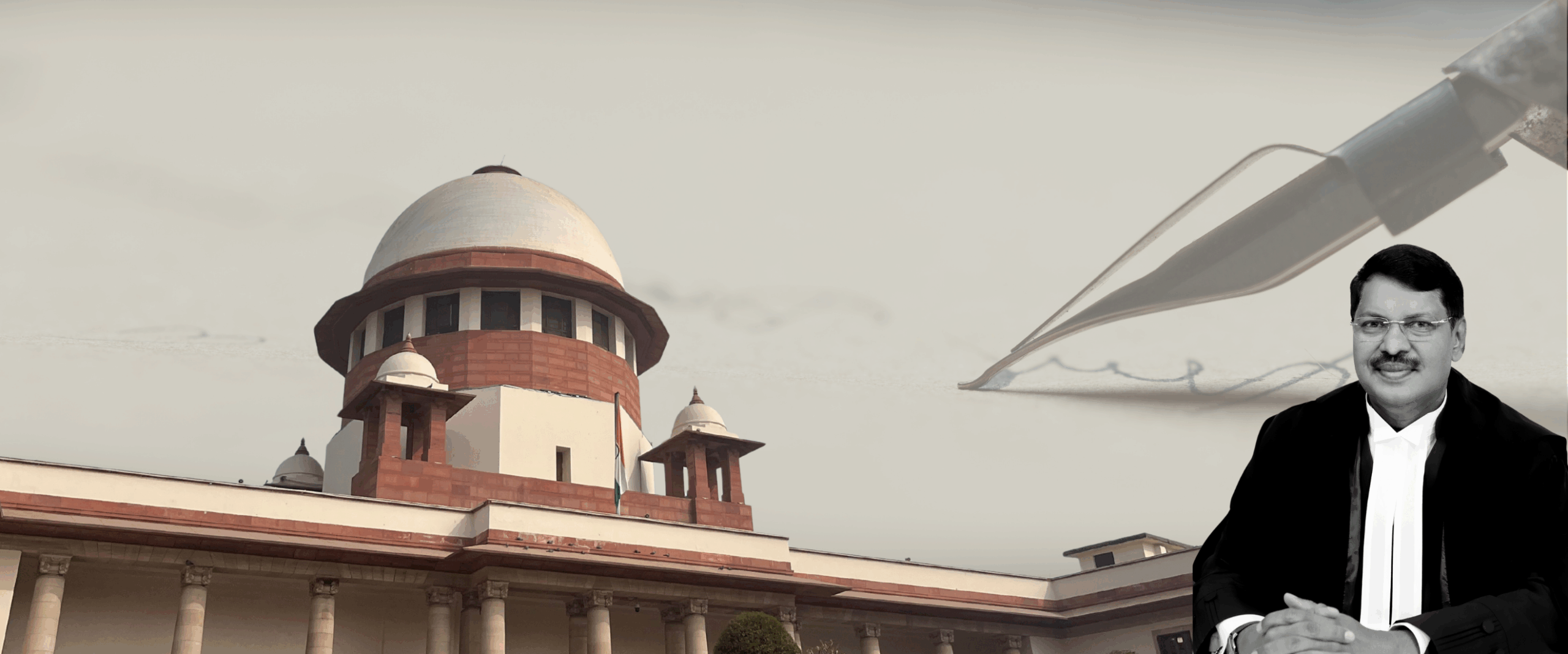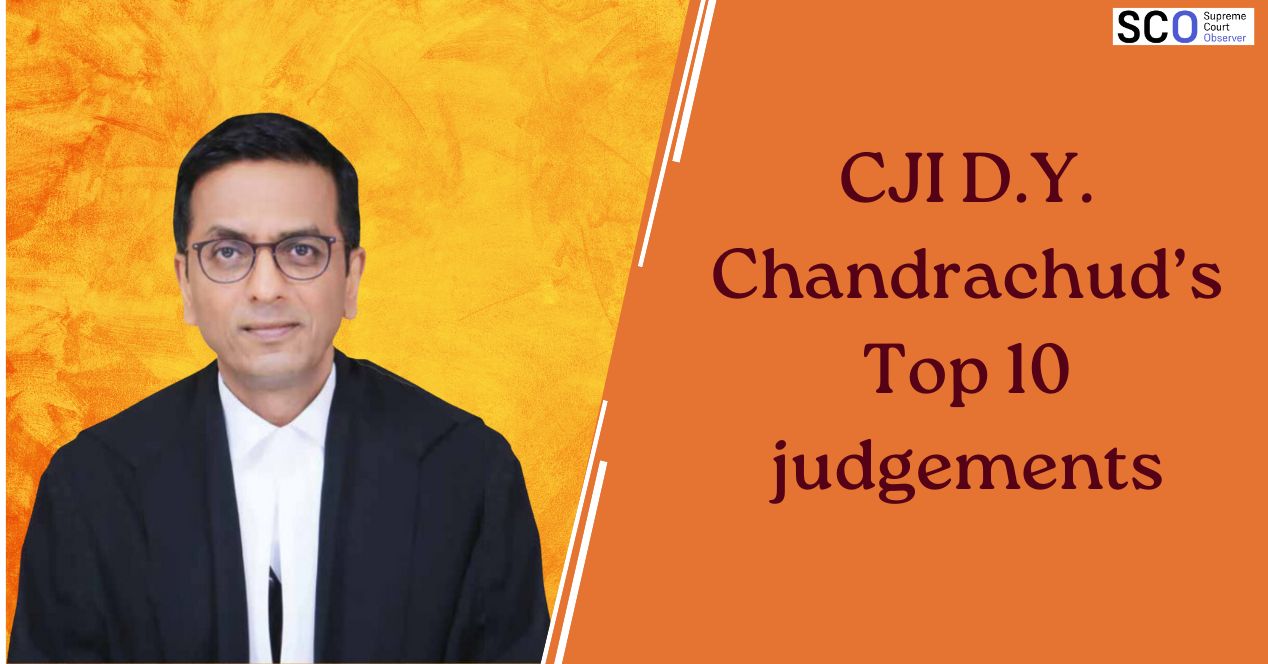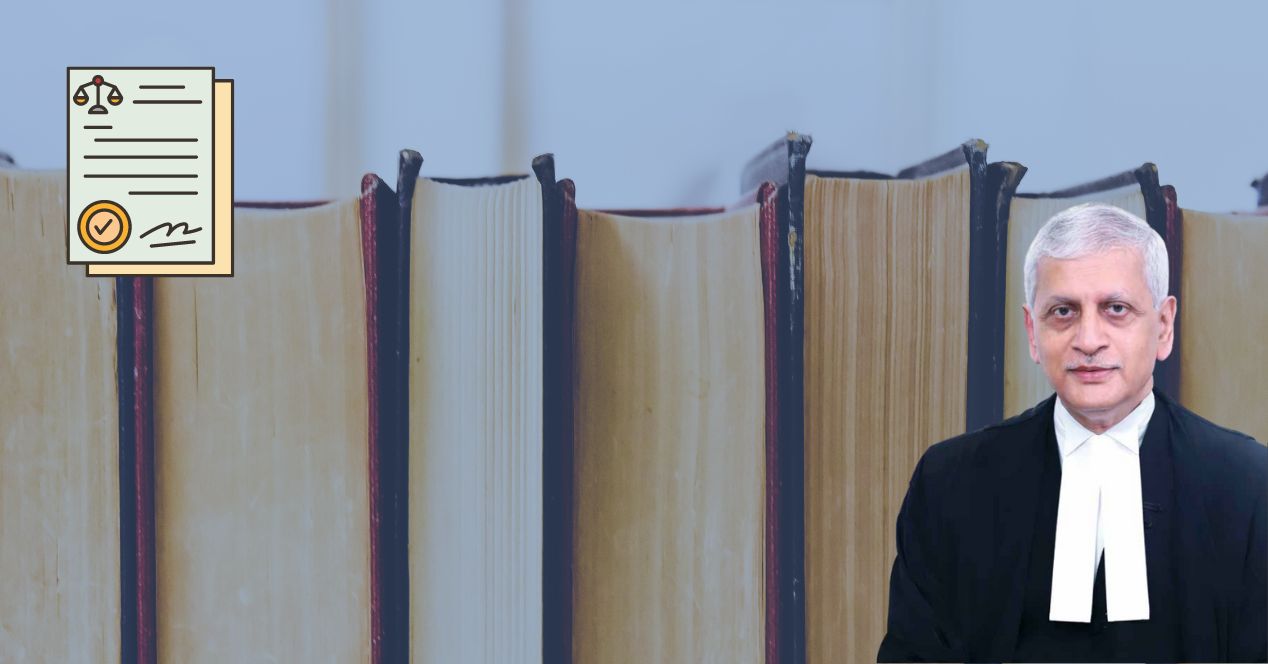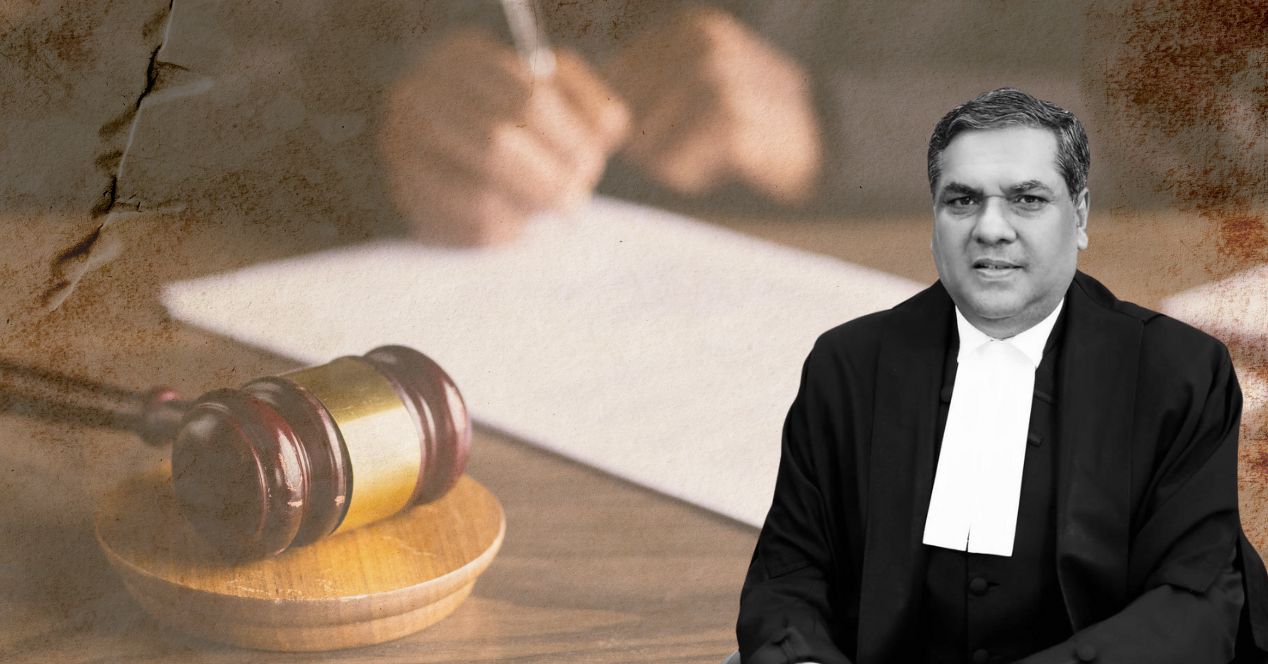Analysis
10 notable judgements by CJI Gavai
Two recalls, a Presidential reference, and a stay order in a highly contentious issue of our times—a list of the outgoing CJI’s key verdicts

With Chief Justice B.R. Gavai set to retire this Sunday, we look at 10 notable judgements from his six-year tenure in the Supreme Court. CJI Gavai has ruled on several politically charged matters, including powers of the Governor and President and sub-classification of Scheduled Caste and Scheduled Tribe communities. His slew of recent decisions on judicial service matters are likely to have far-reaching consequences for the future of the judiciary.
During his six months as head of the apex court, CJI Gavai also passed significant rulings on environmental clearances, ‘bulldozer justice’ and the Waqf (Amendment) Act, 2025. He has been part of 772 benches and has authored 464 judgements, making him one of most prolific judges of the current roster.
1. Powers of Governors and the President are not justiciable
On 13 May, just a day before CJI Gavai was sworn in as the 52nd Chief Justice of India, President Droupadi Murmu sought the Court’s advisory opinion under Article 143 on a total of 14 questions. Her reference questioned the Court’s authority to impose timelines for assent of bills by a Governor and the President, as it had done in State of Tamil Nadu v Governor of Tamil Nadu (2025).
On 20 November, in a unanimous advisory opinion that was not signed by a single author (CJI Gavai read out the pronouncement in the courtroom), the Court declared the ruling in Tamil Nadu v Governor as erroneous and affirmed the discretionary powers of Governors and the President.
The Bench held that the actions of Governors and the President are not justiciable and cannot be subject to timelines laid down by a court. It added that once a bill has been reconsidered by the legislature and sent back to the Governor, assent is not mandatory as the bill can be reserved for the President. The opinion also emphasised that Article 142 cannot be used to override the constitutional functions of the executive.
2. No reservations for Civil Judges
On 19 November, a five-judge Constitution Bench led by CJI Gavai laid down guidelines for the determination of seniority within the Higher Judicial Services across the country. The decision came in response to an application seeking reservations for Civil Judges in promotions to the post of Principal District Judge. The matter was heard under the continuing mandamus in All India Judges Association v Union of India.
Contrary to submissions of the petitioners, the Bench found that the current system of promotion and calculation of seniority does not disadvantage Civil Judges in favour of direct recruits from the advocate stream. The Judgement dismissed the need for reservations in promotion, underscoring that District Judges form a unified cadre and cannot be distinguished based on the mode of recruitment. It held that while High Courts retain discretion over management of their own judicial services under Articles 233 to 235, the Supreme Court can mandate exercise of that discretion within a national framework to ensure coherence and uniformity.
3. Tribunal reforms struck down—once again
On 19 November, a Bench of CJI Gavai and Justice Chandran upheld the decision in Madras Bar Association-4 (2020) and Madras Bar Association-5 (2021) and struck down provisions of the Tribunals Reforms Act, 2021. It found that the contested provisions were reproduced verbatim from the Tribunals Reforms Ordinance, 2021 which had been declared unconstitutional by the Court. The Bench underscored the role of judicial review in maintaining constitutional supremacy and held that Parliament cannot re-enact provisions without resolving the defects identified by Court.
Notably, provisions related to eligibility, selection process, tenure and other service conditions were struck down for enabling executive interference in judicial functions. Since 1987, several benches have found similar reforms offensive to the separation of powers. This time around, reference to a larger bench was denied on the grounds that it would be an “avoidable consumption of judicial time.”
Observing that “piecemeal reforms” cannot remedy systemic deficiencies, the Bench directed the establishment of a National Tribunals Commission within four months.
4. Vanashakti recalled
On 18 November, a three-judge Bench recalled the judgement in Vanashakti v Union of India (2025) and held that environmental clearances (ECs) can be granted post facto in exceptional circumstances. The decision was a 2:1 split, with CJI Gavai and Justice K.V. Chandran in majority. Justice Ujjal Bhuyan, who was on the bench for Vanashakti along with Justice A.S. Oka, authored a dissent. The matter centred on a 2017 notification which provided—as a one-time measure—that ongoing or completed projects without prior ECs could now obtain clearances within a specified period.
The Judgement held that by striking down the notification, Vanashakti had departed from precedent and the Environment Protection Act, 1986. It further left completed projects vulnerable to demolition which could result in a waste of public resources and needs—as in the case of the AIIMS, Odisha and a greenfield airport in Karnataka.
In his dissenting opinion, Justice Bhuyan observed that the ‘precautionary principle’ is the “cornerstone of environmental law” and it cannot be given short shrift in favour of the ‘polluter pays’ principle, which is only a guide for reparations.
5. Recruitment of in-service judges through advocate stream
On 9 October, a five-judge Constitution Bench led by CJI Gavai overruled the position in Dheeraj Mor v High Court of Delhi (2020) and held that Article 233 does not provide a quota for practising advocates. It interpreted the provision as a complete code, making both advocates and in-service candidates eligible for appointment as District Judges. Recognising the need for parity, it extended the criteria of seven years experience for judicial officers, clarifying that years of advocate practice and judicial service could be combined. The decision will operate prospectively, and prior appointments will remain unaffected unless covered by interim orders.
The ruling is significant for its correction of the long-standing judicial interpretation of the two clauses of Article 233. It clarified that clause (1) covers all aspects of appointment, promotion and posting irrespective of mode of entry and held that exclusion of judicial officers would be arbitrary and violative of Article 14. Following the recommendation of the Shetty Commission, the Judgement set a minimum age of 35 years for applying for a District Judge post.
6. Bhushan Steel reinstated
On 26 September, in a move that was welcomed by the corporate sector, a three-judge Bench led by CJI Gavai reversed a two-judge Bench’s decision on the liquidation of Bhushan Power and Steel. JSW had acquired BPS for ₹19,700 crore in 2021 and on 2 May, the two-judge Bench set aside their resolution plan, leading to a sharp drop in share prices and widespread uncertainty around the insolvency regime in India.
The review Bench clarified that liquidation is a last resort and cautioned courts against micromanagement of business decisions. While the previous bench took a strict approach to the 330-day timeline, this Judgement described the Insolvency and Bankruptcy Code, 2016 as a “living framework” and accepted JSW’s reasons for delay.
7. Waqf (Amendment) Act, 2025: Interim stay on key provisions
On 15 September, a Division Bench of CJI Gavai and Justice A.G. Masih passed an interim judgement to stay key provisions of the Waqf (Amendment) Act, 2025. The question before the Bench was whether the Act violates freedom of religious denominations to manage their own affairs by permitting management of Waqf properties by the Union government.
The Bench observed that such relief can only be granted in “rare and exceptional” cases, and found that no case had been made to justify a stay on the entire statute. Notably, the Bench upheld the Act’s deletion of ‘Waqf by user’, noting that the Mutawalis of long-existing waqfs had more than a 100 years to get their properties registered. It clarified that its stay on the mandatory requirement of five years of practice of Islam for creation of a Waqf property is only until the Union frames a mechanism for determination.
8. ‘Bulldozer justice’ to be dealt with the heavy hand of law
On 13 November 2024, a Division Bench of Justices Gavai (as he then was) and Justice K.V. Viswanathan upheld the right to shelter as a facet of Article 21 and struck down “high-handed and arbitrary” demolitions by the State. It also issued pan-India guidelines to govern the same. The matter involved a batch of writ petitions by citizens whose residential and commercial properties were demolished on the grounds of them being involved in criminal offences. While the decision does not explicitly mention it, reports by independent human right organisations suggest that the executive disproportionately targets minorities and marginalised communities with arbitrary demolitions.
Quoting Lord Denning, Justice Gavai noted that “even if the wind and rain can enter a poor man’s frail cottage, the King of England cannot unless justified by law.” He observed that when the executive “acts as a judge and inflicts penalty of demolition” upon undertrial individuals, it violates the separation of powers and the foundational principle of presumption of innocence. The Judgement further pointed out that the families of accused persons cannot be penalised without fault and found that the State’s actions failed the test of proportionality as demolition was not the only option available.
The Chief Justice later described their strongly worded decision as one that brought him “immense satisfaction.”
9. ‘Creamy layer’ of backward castes cause ‘double injury’
On 1 August 2024, a seven-judge Constitution Bench led by former CJI D.Y. Chandrachud upheld the validity of sub-classification with SC/ST categories in a 6:1 majority. In his concurring opinion, Justice Gavai (as he then was) pointed out that “there is no caste by the name of Scheduled Caste” and held that SCs are a heterogenous group of castes with differing historical experiences of hardship and backwardness.
He further observed that the ‘creamy layer’ can be excluded from reservation. Quoting Justice Krishna Iyer, he noted that certain “upper berth occupants from backward classes” cause “double injury” by reaping more benefits than others and “beguiling the broad community into believing that backwardness is being banished.” Responding to the concern that political parties may capitalise on sub-classification to gain votes, CJI Gavai cited Dr. Ambedkar, and held that judicial review was a sufficient safeguard.
10. Demonetisation scheme upheld after six years
On 2 January 2023, a five-judge Constitution Bench led by Justice Abdul Nazeer held that the demonetisation of all ₹500 and ₹1,000 currency notes in November 2016 was well within the powers of the Union. The decision was a 4:1 split, with the majority opinion authored by Justice Gavai (as he then was) and a dissent by Justice B.V. Nagarathna.
While Nagarathna found flaws in implementation of the scheme and held that there was “no independent application of mind” by the Reserve Bank of India, Justice Gavai found that proper procedure was followed as the Union and RBI had deliberated the scheme for six months.




